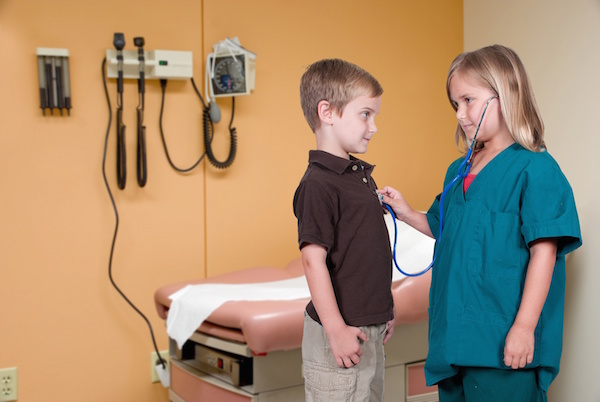
MONDAY, Jan. 25 (HealthDay News) — Ambidextrous children are more likely to have attention-deficit/hyperactivity disorder (ADHD), problems with language and schoolwork, and other mental health issues than right-handed children, new research suggests.
Children are considered ambidextrous if neither hand is dominant, where they switch between using the right and left hands for activities such as eating or writing, or they use their right hand for certain activities and the left for others.
In the study, researchers analyzed data on nearly 8,000 children born in 1985-1986 who participated in the Northern Finland Birth Cohort. Language difficulties, scholastic performance and mental health issues were assessed between ages 7 and 8 and again at age 16 through reports of symptoms from teachers, parents and the children themselves.
At age 8, children who were “mixed-handed” were twice as likely as right-handed children to have difficulties with schoolwork or language, such as with reading or their ability speak as well as their peers.
At age 16, mixed-handed children were twice as likely to have problems with language at school and scores on assessment tests indicating they likely had ADHD. Symptoms of ADHD include excessive fidgeting, inability to focus on a task or concentrate, impulsivity and poor school performance.
Mixed-hand children were also more likely to have signs of psychiatric disturbances, the researchers found.
The study authors noted that mixed-handedness could be useful in diagnosing children with ADHD and other mental health issues.
“Mixed-handedness together with the presence of behavioral problems can be a red flag,” said study author Alina Rodriguez, of the department of psychology at Uppsala University in Sweden. “However, mixed-handedness alone does not necessarily imply that the child has problems. Mixed-handedness is one of a host of other known risk factors.”
The study is published in the Jan. 25 online issue of Pediatrics.
About 1 percent of children in the study were identified by their parents as being mixed-handed, while about 8 percent of kids were left-handed. The researchers found no association with being left-handed and any of the scholastic or mental health impairments.
One explanation for why mixed-handed children may be more prone to language difficulties and ADHD is because being ambidextrous is a proxy for atypical cerebral lateralization, or differences in the structure and function of the brain.
The brain is normally specialized, Rodriguez explained, with the left hemisphere of the brain dominant in right-handed people. Mixed-handed people, however, have differences in the typical dominance pattern of the brain.
Prior research has suggested that children with dyslexia and with ADHD have disturbances in the right hemisphere.
Though the study is interesting, it’s probably of limited use as a diagnostic tool, said Dr. Andrew Adesman, chief of developmental and behavioral pediatrics at Schneider Children’s Hospital in New Hyde Park, N.Y.
Most of the mixed-handed children in the study did not have ADHD, scholastic difficulties or any other mental health issues, he noted. And the majority of children who had ADHD or problems at school were not mixed-handed.
Still, it’s an area that merits further research, Adesman said.
“Handedness has a relationship to brain development, and brain development has a relationship to ADHD and dyslexia,” Adesman said. “The data support the idea that there seems to be an increased association between mixed-handedness and learning-attentional problems.”
More information
CHADD (Children and Adults with Attention Deficit/Hyperactivity Disorder) has more on ADHD.

